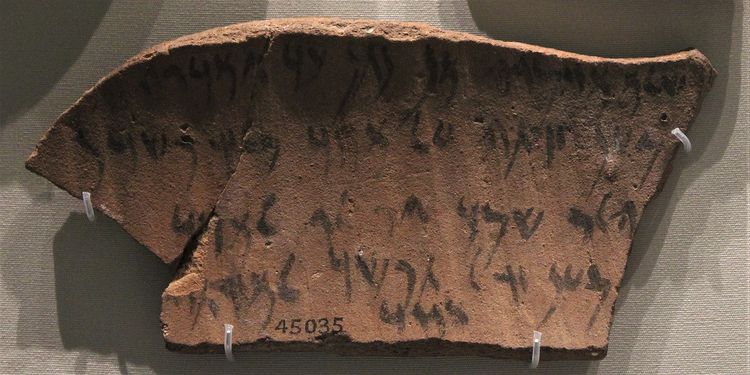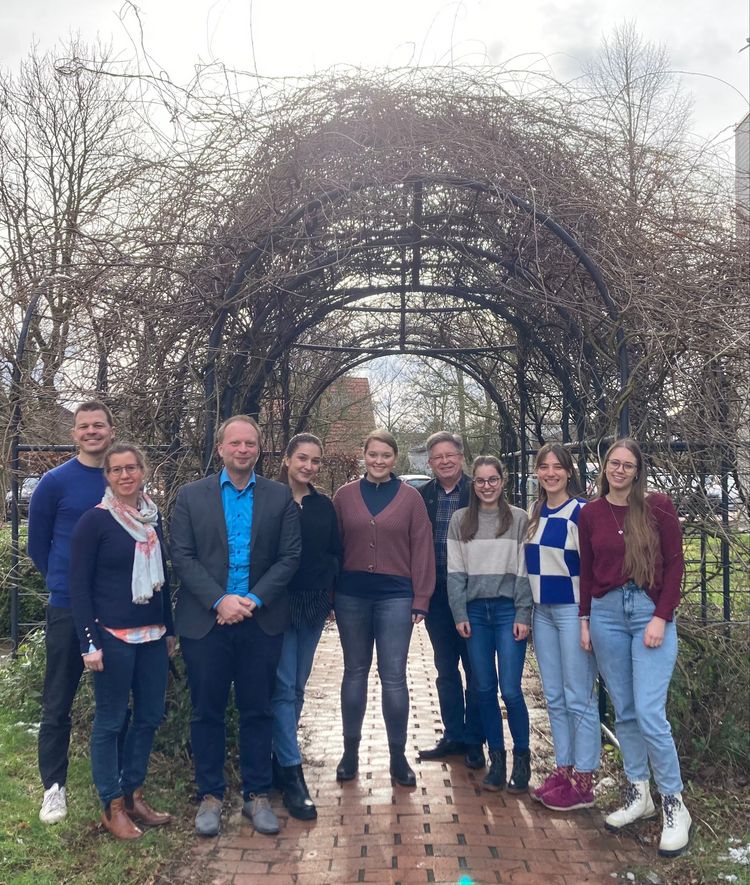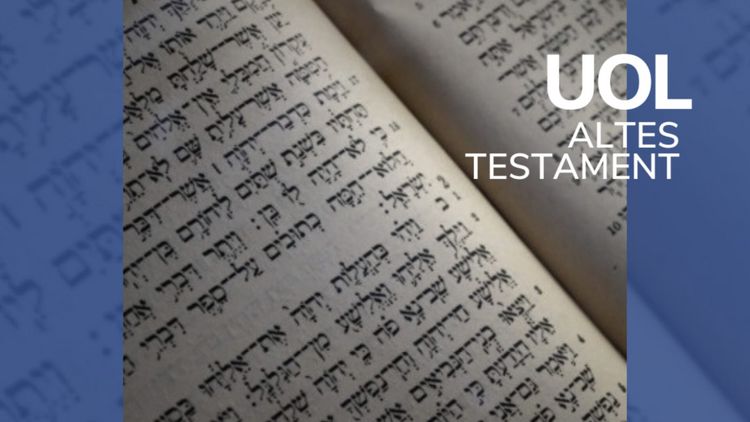Dr. Gad Barnea
Projekt „Interrogating the Past: Jewish Cultural Heritage in the Achaemenid period”

Presse
Zur Presseberichterstattung der UOL über Gad Barnea und einme Interview mit ihm geht es hier entlang.
Team
Lehrsuthlinhaber:
Wissenschaftliche Mitarbeitende:
- Dr. Jordan Davis
- Dr. Felix Hagemeyer
- Dr. Friederike Neumann
Sekretariat:
Lehrbeauftrage:
Carl von Ossietzky-Gastdozentur am Lehrstuhl:
- Dr. Gad Barnea, University of Haifa (Israel) (Wintersemester 2023/24)
Studentische Hilfskräfte:

Dr. Gad Barnea
Carl von Ossietzky-Gastdozentur
Lehrstuhl für Altes Testament - Benedikt Hensel - Wintersemester 2023_24
Dr. Barnea is a Lecturer at the department of Jewish history and biblical studies at the University of Haifa as well as a Research Fellow at “the Bible in its Traditions,” a research project of the École biblique et archéologique Française de Jérusalem - and a flagship in the field of Digital Humanities. Barnea’s scholarly focus is directed at researching and teaching the evolution and character of “Yahwism under the Iranian ‘Age of Empires’”—from the rise of the Achaemenid empire to the fall of the Sassanian empire.
Already during his academic studies, Barnea recognized that the scholarship of the ancient Near East, ancient Judaism and biblical studies is seriously crippled by a lack of awareness and engagement with the rich history, linguistics, cultic practices and writings of the Iranian empires who, in one way or another, ruled over the region and its peoples for well over a millennium. The Iranian “age of empires” was instrumental as the historical and ideological background for the composition, edition and redaction of the Hebrew Bible, the apocryphal texts, early-Christianity, the so-called “Gnostic” writings as well as rabbinic and early mystical Jewish works.
Specifically in the realm of cultic practices, Barnea’s scholarship examines the dialogue and symbiosis of early-Zoroastrianism and Yahwism (or early Judaism). On that front, Barnea has made several important contributions—in articles as well as lectures—to the study of interpretatio iudaica in the Achaemenid period as well as the early-Zoroastrian features found in the royal inscriptions (Xerxes’ “Daiva” inscription). He has recently designed a course, entitled “Seen from the East: Judaism under the Iranian ‘Age of Empires’” which he is currently teaching simultaneously at the universities of Haifa, Israel and Oldenburg, Germany.
A significant portion of Barnea’s scholarship is devoted to epigraphic work. He has recently published a previously misread ostracon from Elephantine dating to the early Achaemenid period, which is the first and only direct witness we possess of a Jewish female temple officiant-a priestess-in charge of a cultic service at the temple of Yhw. it is also the earliest Jewish curse text known to us outside the bible and the only direct extra-biblical witness we have to a Jewish ritual of any kind prior to the Greco-Roman period. In addition, it is the oldest known example of this genre of “curses against thieves” which we know were very popular later in the Greco-Roman world and the only known specimen of such a curse text that survived in Aramaic. Furthermore, it is the unique witness of this genre of curse ritual in a Jewish context, and the sole record of any ritual performed at a temple to Yahweh.
Barnea’s epigraphic work also led him to restore a remarkable Qumran scroll (4Q550) which recounts a previously unknown Achaemenid court tale and is forthcoming in Brill’s DSSE series. He has recently signed an agreement with Palgrave-Macmillian to write a comprehensive book covering the history and character of the Yahwistic community at Elephantine and is co-editor with Prof. Reinhard Kratz (Gõttingen) of the forthcoming book “Yahwism under the Achaemenid empire,” which is and edited volume inspired by the international conference under the same name (in honor of the late Prof. Shaul Shaked) that Barnea organized in Dec. 2022 at the university of haifa.
International collaboration is a central feature of Barnea’s activities and his collaboration with Prof. Benedikt Hensel on a number of groundbreaking projects promises to rethink the epigraphy of Judaism in the Achaemenid period using innovative methodologies and technologies.
Finally, Barnea brings several decades of experience in designing and managing complex technology projects into the field of Digital Humanities - as well as in the formulation and establishment of international technology standards (VRML 97). He has been a central member and a technology consultant of the Digital project “the bible in its traditions” and is currently developing, together with Prof. Hensel, a new standard approach to the elaboration of Digital Humanities projects.
Dr. Gad Barnea on the Web
- https://haifa.academia.edu/gadbarnea
- https://cris.haifa.ac.il/en/persons/gad-barnea
- A National Geographic Article featuring Barnea’s research regarding the Yahwistic priestess ostracon from Elephantine: https://www.nationalgeographic.com/premium/article/jewish-curse-bible-tablet-israelite-priest-women-elephantine
- „The Israelite Priestess in the Nile Island’s Temple - A Groundbreaking Discovery”: Documentary and Interview, starring Dr. Gad Barnea. On Youtube: https://youtu.be/_3NXeBlHFuY?si=L8WT2cXLxIL2Zp_u.
Publications (selection)
- Pentiuc, E. J., Barnea, G, Méténier, É, Popko, Ł (2017). Hosea: the word of the Lord that happened to Hosea. Leuven, Peeters.
- Barnea, G. (2017). "Grammar Serving Theology: 'Εἰς' and the Markan Baptism Narrative." RB 124(4): 507-528.
- Barnea, G. (2022). "Enforcing YHWH’s Covenant with Blessings and Curses—Imperial Style." TheTorah.com.
- Barnea, G. (2023). "The Migration of the Elephantine Yahwists under Amasis II." Journal of Near Eastern Studies 82(1): 103-118.
- Barnea, G. (2023). "Interpretatio Ivdaica in the Achaemenid Period." Journal of Ancient Judaism 14(3): 1-37.
- Barnea, G. (2023) Justice at the House of Yhw(h): An Early Yahwistic Defixio in Furem. Religions 14, DOI: 10.3390/rel14101324
- Barnea, G. (2023). "Dating Amos’ Oracles Against the Nations: Metaphors of Neo-Assyrian Campaigns." RB 130(4): 524-551.
- Barnea, G. (2024 forthcoming). P. Berlin 13464, Yahwism and Achaemenid Zoroastrianism at Elephantine. Yahwism under the Achaemenid Empire, Prof. Shaul Shaked in memoriam. G. Barnea and R. G. Kratz (eds.). Berlin, de Gruyter.
- Barnea, G. (2024 forthcoming). "Yahwistic Identity in the Achaemenid period." Zeitschrift für die Alttestamentliche Wissenschaft 136(1).
- Barnea, G. and Kratz, R. G eds., Yahwism under the Achaemenid Empire, Prof. Shaul Shaked in memoriam (BZAW; Berlin: de Gruyter, forthcoming 2024).

